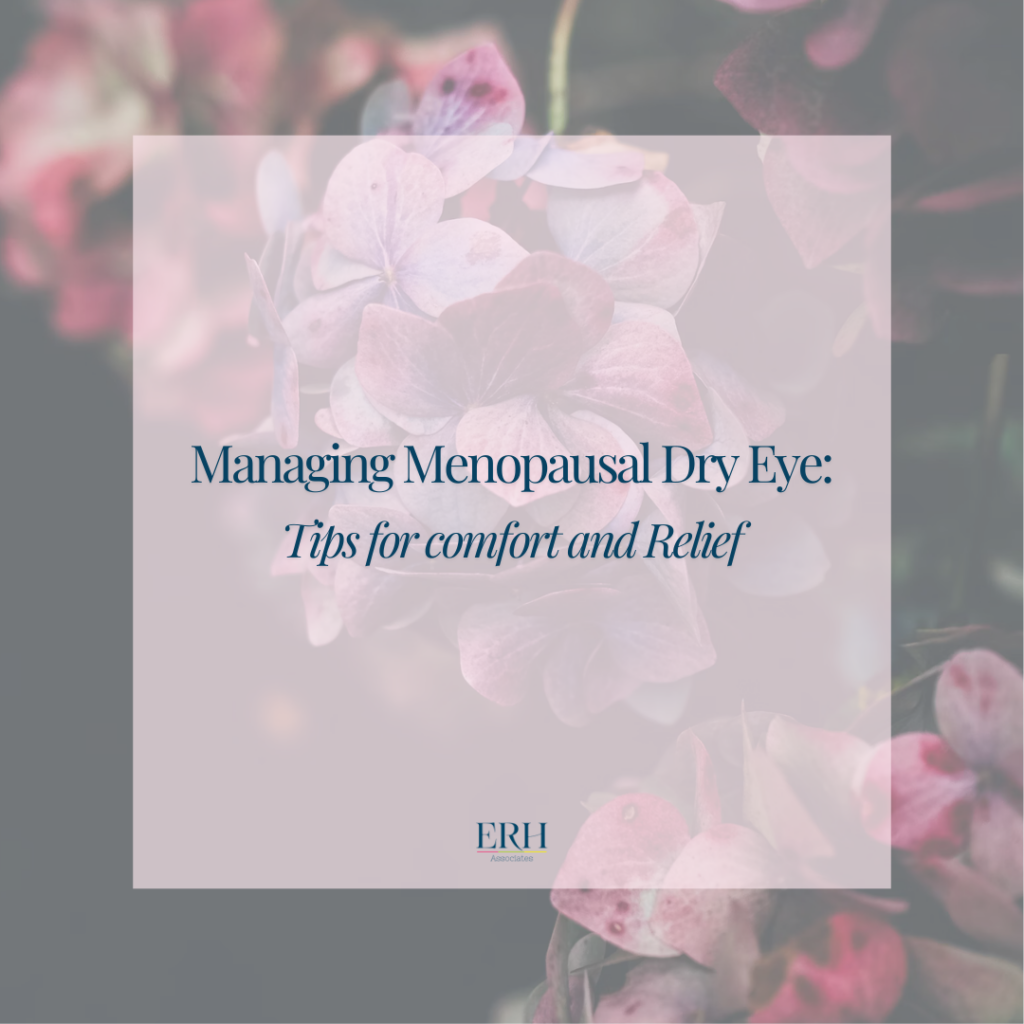As women transition into menopause, hormonal changes can lead to dry eye syndrome—a common but often overlooked issue. This condition occurs when the eyes do not produce enough tears or when tears evaporate too quickly, leading to irritation, discomfort, and even vision problems. Below are some strategies to help manage and alleviate dry eye symptoms during menopause.
Tips for Managing Dry Eyes
1. Rehydrate with Eye Drops:
Start with light, hydrating eye drops for quick relief, followed by a soothing gel for lasting comfort. Omega-3 enriched drops can provide additional support.
2. Moisturize and Protect:
Keep the delicate skin around your eyes hydrated with a water or hyaluronic acid-based moisturizer. Seal in moisture with a barrier product to prevent dehydration throughout the day.
3. Gentle Lid Massage:
A gentle massage along the lash line can help release natural oils from the Meibomian glands, enhancing eye lubrication and comfort.
4. Warm Compresses:
Use a warm compress, such as a lavender-scented weighted eye mask, before bed to soothe your eyes and improve oil flow, reducing dryness.
5. Hydrate and Sleep Well:
Stay hydrated by drinking plenty of water, and prioritize restful sleep to support your overall eye health.
6. Support from Within:
Taking Omega-3-rich fish oil capsules can nourish your eyes from the inside out, improving tear production and reducing inflammation.
For those experiencing persistent dry eye symptoms, it’s essential to consider professional evaluation with an optometrist or opthalmologist.
If you’re experiencing ongoing discomfort, an ophthalmologist can perform a comprehensive eye examination to assess tear production and the health of your ocular surface and to exclude other causes of eye irritation. Treatments may include prescription eye drops, or procedures like punctal plugs to conserve tears.Early intervention is key to preventing more serious complications associated with chronic dry eye.
For more comprehensive menopause support, join the waitlist for our upcoming Menopause app-based course. The course will provide step-by-step guidance, evidence-based medical information mindset strategies, and practical tips to help you navigate menopause with confidence. We will be announcing the course launch date soon!
For personalised medical care around the hormonal aspects of menopause ask your doctor for a referral to ERH Associates

Comments +